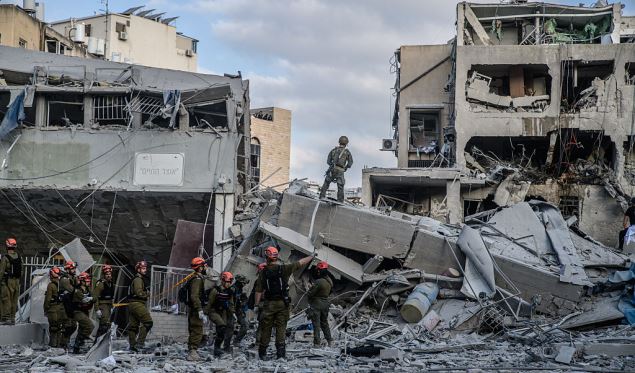Driving in Kenya’s capital, Nairobi, can be a nightmare. Not only is one prone to spending endless hours in traffic jams, but also the roads are menaced by brilliantly coloured, insanely driven, hulking deathtraps that pass for the city’s public transport system. But its upcoming elections might be a great worry.
Check also: Why Jack Ma Travelled To Kenya And Rwanda With 38 Chinese Billionaires
Terrifyingly oblivious to the dangers they pose to both their passengers and other road users, the matatus — as the beasts are called — are a perfect metaphor for Kenya as it hurtles toward elections next month.
With three weeks to go, domestic and international observers are concerned with whether the polls will be peaceful and fair. Kenya is still haunted by the the post-election violence of a decade ago, in which at least 1,300 people died and more than 600,000 were displaced from their homes. Many are fearful of a repeat of violence if the credibility of the election is in doubt, as it was in 2007.
There is good reason to worry. Just like in 2007, the campaigns of incumbent President Uhuru Kenyatta and his main challenger, Raila Odinga, have deeply polarized Kenya along ethnic lines; the nation is split down the middle, with polls showing the race tightening as election day approaches.
Across the country, there are reports of people moving their families away from ethnically mixed neighbourhoods in areas anticipated to be flashpoints of violence, and into tribal enclaves where there is safety in numbers. David Ndii, one the country’s top economists, says flights out of the country on dates surrounding the election are already fully booked.
More disconcerting has been the impugning of the impartiality of the judiciary. In 2007, the opposition refused to entrust the electoral dispute to the courts, providing the spark for the violence. Alongside its poor handling of the 2013 petition against Kenyatta’s election, the judiciary has had to endure continuing allegations of corruption.
Public infighting has broken out within the Supreme Court, which was specifically established in the aftermath of the 2008 violence to deal with electoral disputes. Now, the opposition has already declared that if it suspects the election to be rigged, it would not be returning to the courts, as it did in 2013. Many fear that this is code for a resort to street protests that may potentially degenerate to violence.
The real fuel for the fire in 2007 was the unresolved legacy of the country’s colonial past, which manifests in the form of land conflicts and massive class and regional inequalities. By the time of independence from Britain in 1963, about 60,000 European settlers owned half of all agricultural land in Kenya.
Since then, successive kleptocratic governments have preferred to concentrate these areas in the hands of a small elite, further exacerbating land hunger as the population has grown ninefold. This, in turn, has led to the huge wealth disparities with one report showing 62 percent of the country’s wealth being owned by just 0.02 percent of the population.
The recommendations of a Truth, Justice and Reconciliation Commission, which was meant to help Kenya heal from history, have remained unimplemented; the report itself is gathering dust in Parliament.
The conduct of the Independent Electoral and Boundaries Commission (IEBC) has been a cause for serious concern. One study concluded that “preparations thus far have been plagued by several of the same problems that marred the last election cycle, suggesting a dearth of lessons learned.” Time and again, the IEBC has been chastised by the courts over its arrangements for the elections, most recently in cases concerning the finality of vote counts at the county level and its procurement of ballot papers (the latter case was recently overturned on appeal). Worse is the lack of transparency that has characterized the IEBC planning. IEBC finally agreed to provide public access to the registry of voters — after a questionable audit process.
Even at this late stage, there remains little clarity on what “complementary mechanism” the IEBC plans to deploy if electronic and biometric systems — required for identifying voters and transmitting results from polling stations — fail as they did in 2013.
Perhaps most damaging to the IEBC’s credibility has been the perception that it is doing the incumbent’s bidding. This is reinforced by the near-identical positions the IEBC and the governing Jubilee Party have taken on almost every issue, sometimes resulting in party spokesmen purporting to speak for the elections body as well.
As far as electoral abuses, the IEBC has been quiet on a series of TV commercials paid for by The President’s Delivery Unit, which clearly violate the legal prohibition against the government either advertising its achievements during the campaign period or using public resources to campaign for a particular candidate.
Like Nairobi’s infamous matatus, the election is barreling along, many times on the wrong side of the law, the noise and vitriol of the campaigns drowning out common sense. For the terrified passengers, whether they — and Kenya — arrive at the other side in one piece seems to be coming down to a wing and a prayer.
Source: Washington post
Check also;
- Museveni must go- Former VP Prof Bukenya claims
- 5 Hilarious Things That Every Ugandan Girl Is Tired Of Hearing
- Why Ugandans Believe Nothing Good Comes Out Of Uganda – Oloya
Please use the button below to contribute to Newslex Point, Inc. using a credit card or via PayPal.

 Newslex Point News in Uganda, Uganda news
Newslex Point News in Uganda, Uganda news












